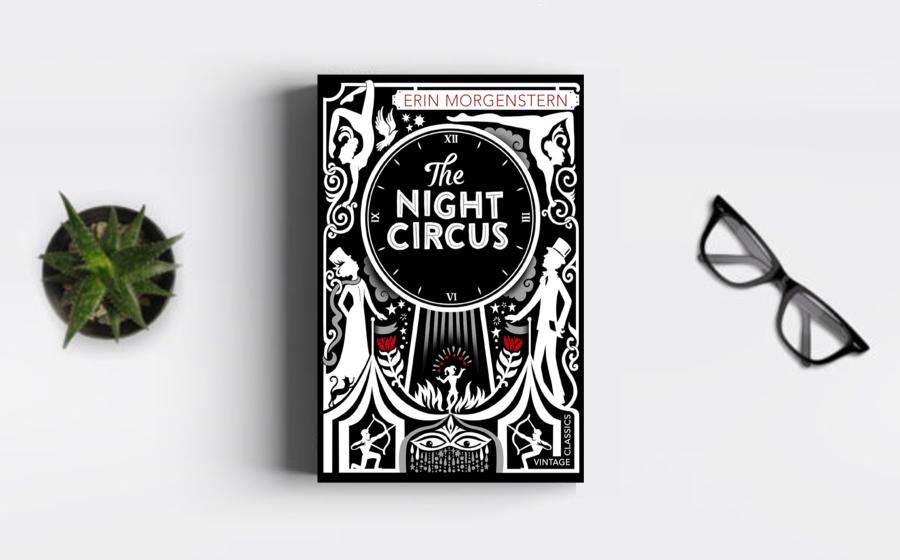"The Night Circus," published in 2011, has captured
the hearts and imaginations of readers worldwide,
establishing itself as a contemporary classic that
defies genre conventions. This enchanting novel weaves a
tale of magic, love, and artistic brilliance within the
confines of a mysterious and fantastical circus. As we
explore the reasons behind its widespread acclaim and
enduring allure, it becomes evident that "The Night
Circus" is a modern masterpiece that transcends
traditional storytelling, inviting readers into a world
where the line between reality and fantasy is
delightfully blurred.
At the heart of the novel
is Le Cirque des Reves, a magical circus that appears
without warning, opening only at nightfall and vanishing
with the first light of dawn. The circus, a stage for
fantastical and wondrous performances, serves as the
backdrop for a competition between two young
illusionists, Celia Bowen and Marco Alisdair. Bound by
their mentors in a mysterious and high-stakes game,
Celia and Marco's magical duels shape the destiny of the
circus and those drawn into its enchanting orbit.
One of the novel's outstanding qualities is
Morgenstern's lush and evocative prose. Her descriptive
language paints a vivid and immersive picture of the
circus, from its monochromatic tents to the tantalizing
scents of caramel popcorn and cinnamon. The author's
ability to convey the sensory experience of the circus
grounds allows readers to step into this magical realm,
creating an atmosphere that feels both nostalgic and
otherworldly. The beauty of Morgenstern's prose is not
just in its descriptive prowess but in its capacity to
evoke a sense of wonder and transport readers to a place
where reality and fantasy coalesce.
"The Night
Circus" stands as a testament to Morgenstern's skillful
storytelling, which unfolds in a nonlinear fashion. The
narrative weaves through time, jumping between different
characters and perspectives, creating a tapestry of
interconnected stories. This nontraditional structure
enhances the novel's sense of mystery and
unpredictability, mirroring the magical and elusive
nature of the circus itself. Morgenstern's narrative
technique contributes to the novel's contemporary
classic status, as it challenges conventional
storytelling norms and engages readers in a narrative
puzzle that requires active participation.
The
characters within "The Night Circus" are as enchanting
as the circus itself, each contributing to the novel's
rich tapestry. Celia Bowen and Marco Alisdair, the
central figures in the magical competition, are complex
and compelling protagonists. Their journey, from
apprenticeship to reluctant adversaries, is a nuanced
exploration of destiny, choice, and the transformative
power of love. The novel's supporting cast, including
the eccentric performers and patrons of the circus, adds
layers of depth to the narrative, making each character
a piece of the larger mosaic.
Central to the
novel's appeal is the theme of creativity and the
boundless possibilities of artistic expression. Le
Cirque des Reves becomes a canvas for the imagination,
where each tent is a work of art, and every performance
is a masterpiece of illusion. Morgenstern celebrates the
idea that art can transcend boundaries, creating a world
where magic and creativity are not confined by the
limitations of reality. This celebration of artistic
expression resonates with readers, inviting them to
explore the limitless potential of their own
imaginations.
The exploration of love in "The
Night Circus" is both poignant and unconventional. The
romance that unfolds between Celia and Marco is not a
conventional love story but a connection forged through
shared experiences, mutual understanding, and a deep
appreciation for the magic they create together.
Morgenstern portrays love as a force that transcends
time and space, capable of weaving its own enchantments.
The novel challenges conventional notions of romance and
embraces a more nuanced and unconventional portrayal of
love that adds emotional depth to the narrative.
Morgenstern's incorporation of elements of the magical
realist tradition further distinguishes "The Night
Circus" as a contemporary classic. The novel blurs the
lines between the magical and the real, inviting readers
to suspend disbelief and embrace the extraordinary
within the ordinary. The seamless integration of magical
elements, such as the Wishing Tree and the enchanted
clock, creates a sense of wonder that permeates every
aspect of the narrative. This blending of the magical
with the everyday contributes to the novel's timeless
appeal and its ability to resonate with readers across
different ages and backgrounds.
The thematic
exploration of choice and consequences adds layers of
complexity to the narrative. The characters in "The
Night Circus" grapple with the repercussions of the
choices they make, both within and outside the confines
of the magical competition. Morgenstern explores the
idea that every action, no matter how small, carries
weight and contributes to the larger tapestry of fate.
This philosophical underpinning adds a layer of
introspection to the novel, prompting readers to
consider the implications of their own choices and the
interconnectedness of individual destinies.
"The
Night Circus" has achieved both critical acclaim and
commercial success, a rare feat that speaks to its broad
appeal and lasting impact. The novel has garnered
numerous awards, including the Alex Award and the Locus
Award for Best First Novel. Its inclusion in book clubs,
reading lists, and literary discussions attests to its
enduring popularity and its status as a work that
resonates with diverse audiences.
The novel's
influence extends beyond literature, with Morgenstern's
creation inspiring various forms of artistic expression.
The enchanting visuals of the circus have been
reimagined in fan art, tattoos, and even real-life
events inspired by the magical world of Le Cirque des
Reves. This cultural impact underscores the novel's
ability to transcend the written word, becoming a source
of inspiration for those seeking to capture the magic
and beauty of Morgenstern's creation in their own
creative endeavors.
"The Night Circus" by Erin Morgenstern is a contemporary classic that enchants readers with its magical prose, intricate storytelling, and celebration of creativity and love. Morgenstern's ability to craft a narrative that defies conventional storytelling norms, coupled with the novel's thematic richness and universal appeal, elevates it to the status of a modern masterpiece.






